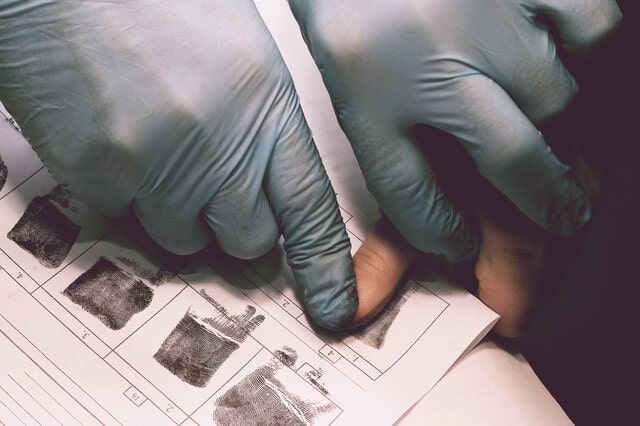












 Author:
Author:
Kimberly J. Benjamin, Founder & Managing Attorney
Published: December 6. 2019.
Updated: December 6. 2019.
Missouri Concealed Carry Law
There is no requirement that you have any kind of permit in order to carry a firearm in the state of Missouri, whether you want to openly carry it or carry it as a concealed weapon. You simply must be age 19 or older to carry a firearm, or you must be at least 18 years old and a member of the U.S. armed forces or an honorably discharged member of the U.S. armed forces.
However, you still can obtain a concealed carry weapons (CCW) permit from your local county sheriff’s department in Missouri. Probably the only reason to obtain a concealed carry permit is if you intend to travel outside the state and want to be able to carry a concealed weapon. This is because certain other states extend reciprocity to Missouri concealed carry permits, meaning that they allow Missouri CCW permit holders to carry concealed weapons in their states, just as they would in the state of Missouri.
Who Can Get a CCW Permit in Missouri?
To get a CCW permit in Missouri, you must be at least 19 (or 18 and a current or honorably discharged member of the United States armed forces), be a U.S. citizen or legal permanent resident, be a resident of Missouri or a member of the U.S. armed forces stationed in Missouri. You also must provide evidence of completion of firearms training by a Missouri-certified instructor in order to get a CCW permit in the state.

There are also certain groups of people who cannot obtain CCW permits in Missouri, or possess a firearm at all. Among others, these individuals include anyone who has been:
- Charged with, convicted of, or plead guilty or no contest to, a crime punishable by more than one year of incarceration or any assault and violent crimes in the last five years
- Convicted of two or more misdemeanor offenses involving drunk or drugged driving, or possession or abuse of a controlled substance in the last five years
- Adjudicated mentally incompetent within the last five years or committed to a mental institution
Other ineligible individuals include fugitives from justice, those whose pattern of behavior leads a sheriff to reasonably conclude that they are dangerous to themselves or others, or who are subject to a current protective order. The Missouri DWI & Criminal Law Center provides strong legal representation on a regular basis for individuals who are charged with traffic tickets, DWI crimes, and other criminal offenses. It is our priority is to represent your interests and protect your rights. Call us at (816) 318-7943 and schedule an appointment to meet with us about your case today.
Where Is Legal To Open Carry In Missouri?
Missouri became a constitutional carry state in 2017. That means an individual doesn’t need a permit to conceal carry or open carry a firearm. However, gun laws in Missouri prohibit possessing, selling, manufacturing, or purchasing assault weapons.
The state doesn’t require individuals to register handguns, long guns, or other types of firearms, and no special license is issued to firearms owners. But, individuals are required by Missouri gun laws to carry the permit, together with a photo ID, anytime they are in actual possession of a concealed gun. Local authorities can regulate open carry if an individual doesn’t have a CCW permit. But, if they do, local authorities are not allowed to place any restrictions on them.
Possession of a firearm and open carry is allowed in state parks, national forests, restaurants, vehicles, roadside rest areas, and all areas not listed as off-limits. Bear in mind that an individual doesn’t have to inform a police officer when approached on official business.
Open Carry Restrictions
Although it may sound that anyone can carry concealed firearms anywhere in Missouri, that is not the case. Intentionally displaying the firearm in an angry or threatening manner not necessary for self-defense is forbidden.
Open carry in any elementary or secondary school facility, college, university, and other institutions, including a church or some other place of religious worship. Open carry in stadiums, hospitals, and school buses is also not allowed. However, Missouri allows a specially trained school employee, such as a school protection officer, to carry firearms on school grounds.
If an individual disobeys these regulations, they may be denied to enter the premises or removed from the premises. If a law enforcement officer is summoned, they may be issued a citation for up to $100 for the first offense. The fine rises to up to $200 for a second offense and up to $500 for the third offense.
After the second offense within 6 months, an individual’s CCW permit may be revoked for a year. After the third offense within a year of the first offense, a concealed carry permit can be revoked. They won’t be eligible for a Missouri lifetime or extended concealed carry permit for three years.
It is up to the individual who uses the deadly force to raise the issue of justification if he or she is charged with a criminal offense after using deadly force against another. If the deadly force occurred when a person unlawfully entered, remained present after unlawfully entering, or attempted to unlawfully enter a dwelling, residence, or vehicle lawfully occupied by the individual, the burden of proof shifts to the prosecution. In such a case, the state must prove beyond a reasonable doubt that the individual did not reasonably believe that the use of such force was necessary to defend against what he or she reasonably believed was the use or imminent use of unlawful force.
A criminal defense lawyer such as those at The Missouri DWI & Criminal Law Center will investigate the facts of your case, assess the situation, and determine whether you have a viable defense. No matter what your situation may be, The Missouri DWI & Criminal Law Center has the experience, skills, and reputation that is essential to present your defense and win. For legal advice about your case, contact us today.






